Nothing excites the imagination like an unanswered question, and since spring I’ve been exploring a little-recognized mystery here in Pennsylvania.
Continue reading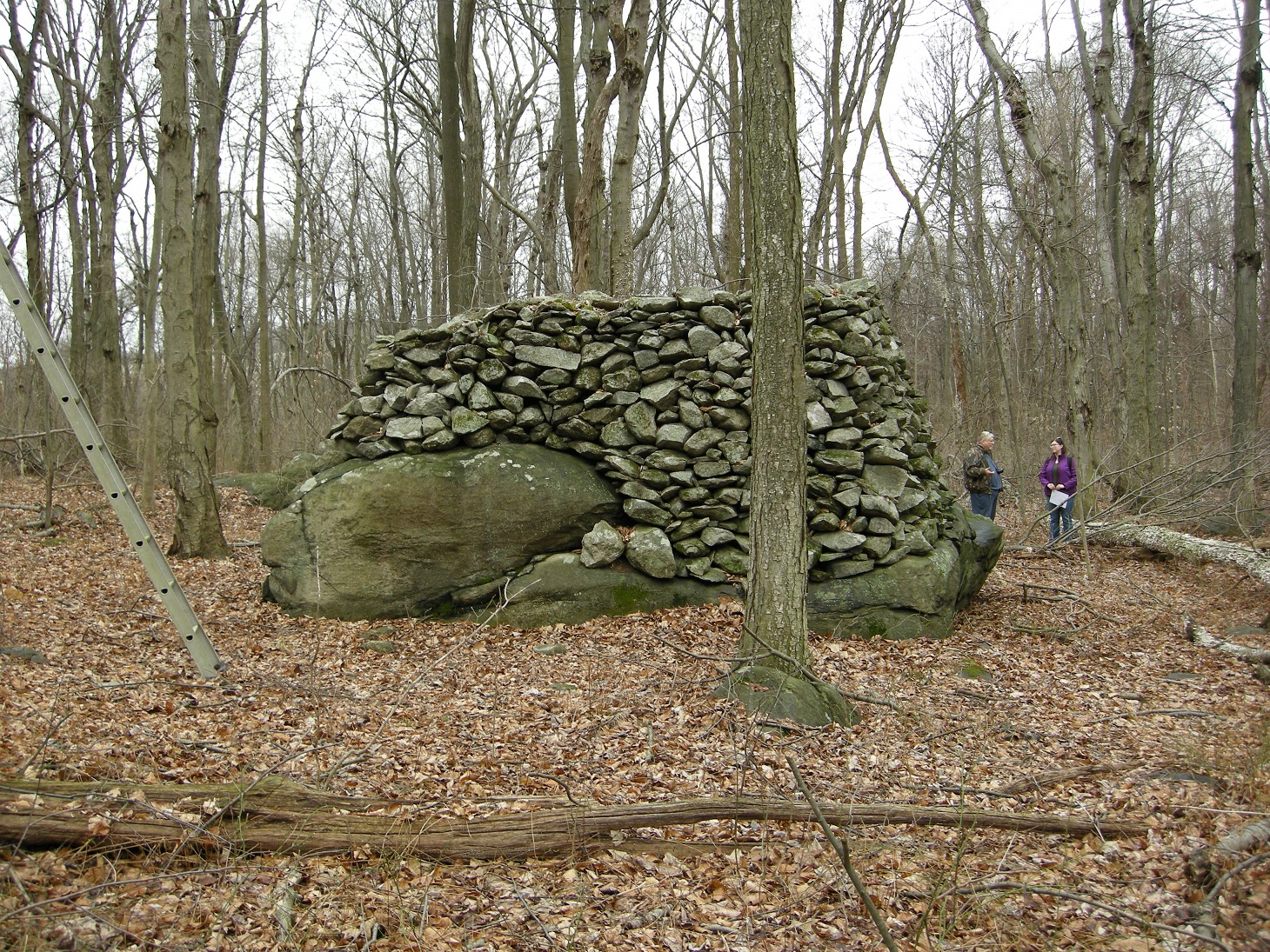
Blog of the Pennsylvania State Historic Preservation Office
Hannah Harvey is an archaeologist and GIS specialist working with CRGIS and the Pennsylvania Archaeological Site Survey.

Nothing excites the imagination like an unanswered question, and since spring I’ve been exploring a little-recognized mystery here in Pennsylvania.
Continue readingIn the winter/spring of 2020, the PA SHPO initiated a pilot project to build a toolkit that will help the PHMC develop cultural resource management plans for the properties that we operate.
Continue readingThe PHMC has been a steward of archaeological site information in Pennsylvania since the late 1920s.
Continue readingThe Pennsylvania State Historic Preservation Office (PA SHPO) is seeking an archaeological research intern to work with the Pennsylvania Archaeological Site Survey (PASS) program.
Continue reading
Did you know that Pennsylvania contains over 25,300 recorded archaeological sites? Continue reading
The Pennsylvania State Historic Preservation Office is seeking an archaeology research intern to help with the development of a proactive, statewide survey program: the Pennsylvania Archaeological Site Survey (PASS). Continue reading
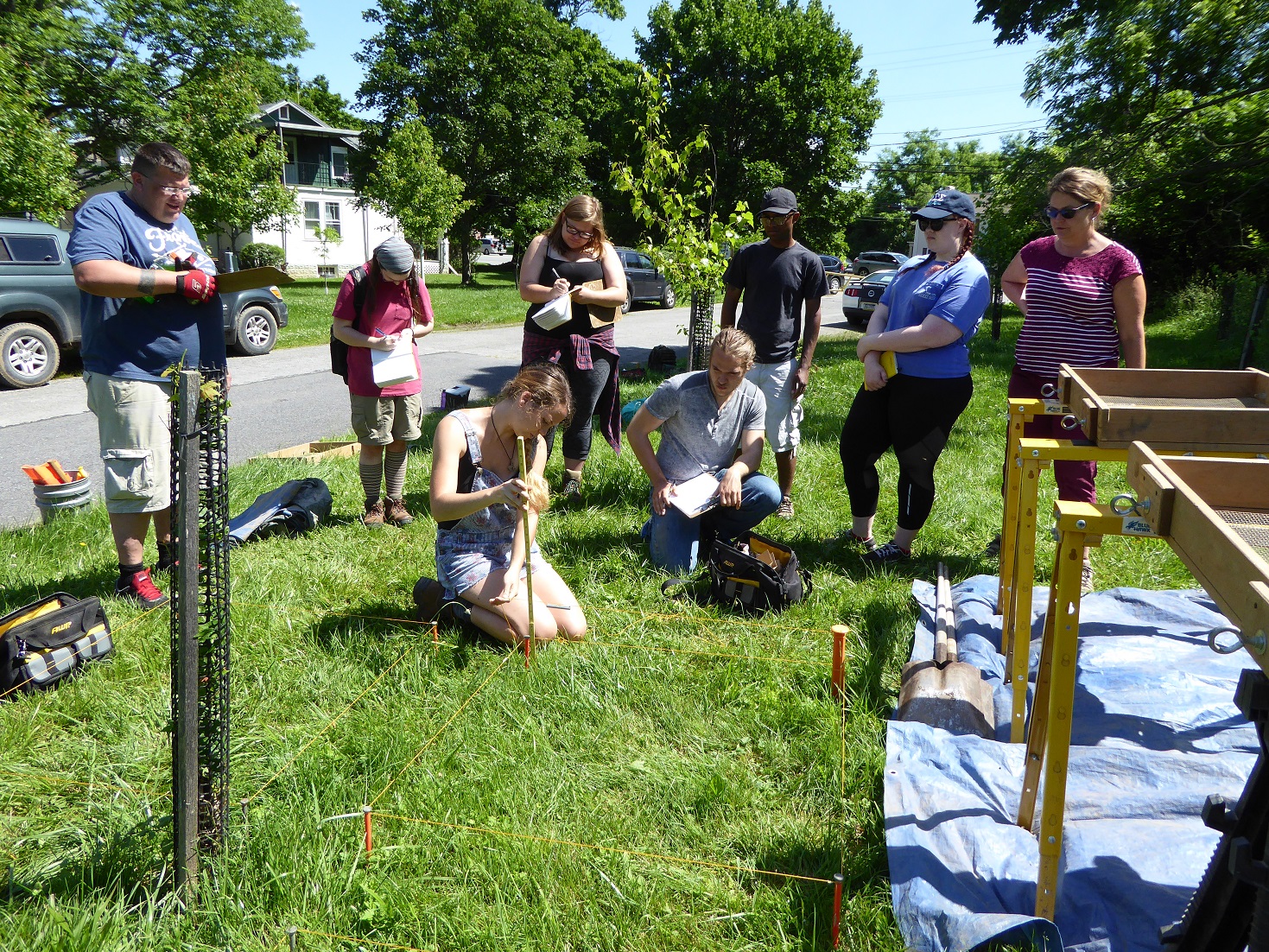
October is Archaeology Month, and what better way to kick it off than with five good reasons why archaeology matters.
Like most artistic, cultural, and educational institutions, we are challenged to demonstrate the public value of what we do. Very often this takes the form of an economic impact statement, but we should not lose sight of the numerous other ways in which history, archaeology, and preservation enhance our lives and communities.
Archaeology, in particular, is difficult to measure in terms of financial impact. In fact, the very concept seems to contradict one of our basic tenets, which discourages the monetization of archaeology and affirms that the true value of archaeology lies in its ability to teach us about the past.
Archaeology Matters – Small Book, Big Message
Trying to think about the bigger picture (an Archaeology 101 elevator pitch), I was inevitably reminded of a book I read in grad school. In Archaeology Matters: Action Archaeology in the Modern World, Jeremy Sabloff makes the compelling argument that archaeological research and methods can address modern, real-world issues such as environmental degradation, sustainability, warfare, and urbanization. While this sounds like your standard “learn from the past” argument, Sabloff suggests that archaeologists can (and should) use their research to actively engage with modern problems, create practical solutions, and inform policy decisions. Classic examples in this vein include the Tucson Garbage Project and recent archaeological studies of homelessness.
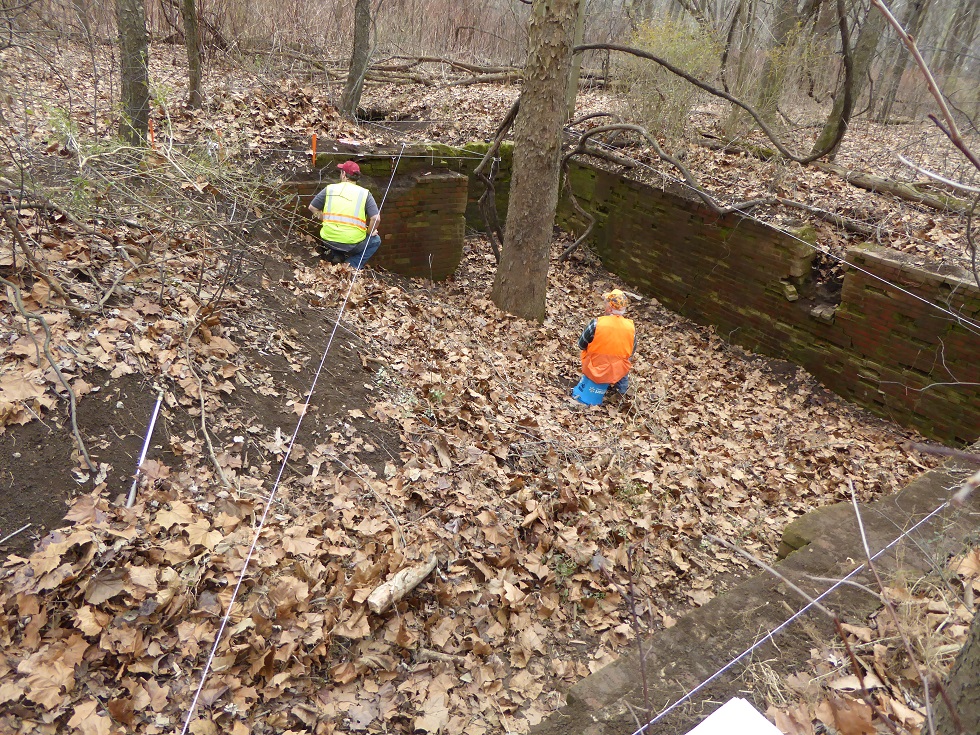
Archaeology can even look at the recent past, including 20th century industrial sites such as this glass factory in western PA.
Our own public benefit lab
Of course, not all archaeology has to address contemporary political topics or issues of world-wide significance to be of value. For Pennsylvania Archaeology Month, I’d like to explore a few of the reasons why Pennsylvania archaeology matters and to highlight some of the ways Pennsylvania’s archaeological community is making an impact:
Pennsylvania has a cool history – Pennsylvania has a fascinating and deep (pun intended) history that covers 16,000 years of human activity! This ranges from the earliest-known Pennsylvania occupation at Meadowcroft Rockshelter, to the development of pottery and plant cultivation in the Woodland period, to 20th century industries. So much of what we can learn about Pennsylvania comes from the archaeological record, but once it is destroyed, that learning is lost forever.
Archaeology provides a multi-disciplinary education – Archaeological methods draw on skills from a wide variety of disciplines in order to document, identify, analyze, and interpret the past. As such, archaeology students can develop skills in math, chemistry, physics, geography, archival research, drawing, and GIS, just to name a few. For a major that is traditionally placed in the humanities and social sciences—it can get pretty “sciency!” These skills (and the critical thinking that goes along with them) translate nicely into most other fields and are a valuable part of a well-rounded education.

Archaeology students at West Chester University of PA learn how to record elevation measurements before opening an excavation unit.
Helping veterans transition to civilian life – The past ten years have seen the emergence of veteran archaeology programs, which help to rehabilitate military veterans through participation in archaeological research. This type of partnership is mutually beneficial to the archaeologists and veterans alike, as the skillsets and team approach from both worlds are complementary. Ongoing research at Fort Ligonier in Westmoreland County has started incorporating the contributions of veterans from American Veterans Archaeological Recovery and Team Rubicon.
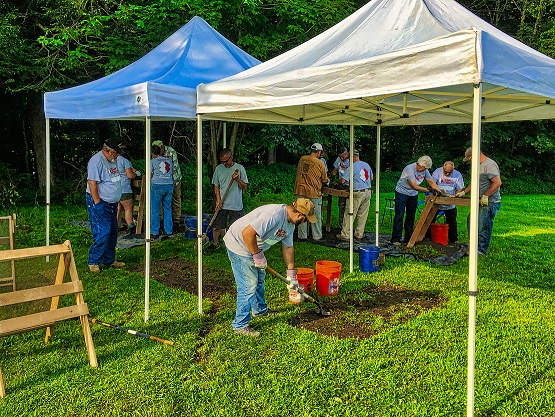
Team Rubicon volunteers excavating at Fort Ligonier in 2018. Image courtesy of Joanne Markow, Team Rubicon.
Bringing to light the experiences of under-represented populations – It is well-recognized that contact-period and historical archaeology helps us understand the experiences of population groups that are often overlooked in written history, but it is a message that bears repeating. With its focus on material remains, rather than just written documents, archaeology has done a tremendous amount to highlight alternative narratives and little-known historical events, and to meaningfully connect the past with present-day descendant communities. Research at Pandenarium, a 19th century freed African American village in Mercer County is just one recent example.
Archaeology is a gateway to local history – The best archaeology projects involve some kind of public outreach—whether including public volunteers in the work or sharing what we’ve learned with the local community. The ability to see the past through features and ruins on a site, or to touch an everyday object that has not been handled in thousands of years, provides all of us with a fresh and tangible connection to the humans who walked before us. Public archaeology is a powerful way to connect local communities with their own history, as was demonstrated by the public outreach efforts of the I-95 improvement project in Philadelphia.
How can I be involved?
At its heart, archaeology is a public, collaborative effort. There are many ways to be involved, whether recording new sites or volunteering alongside professional archaeologists. If you’re interested in learning more, the following websites will point you in the right direction:
October is Archaeology Month!
Archaeology Month is sponsored by the Pennsylvania Historical and Museum Commission, the Society for Pennsylvania Archaeology, Inc., and the Pennsylvania Archaeological Council.
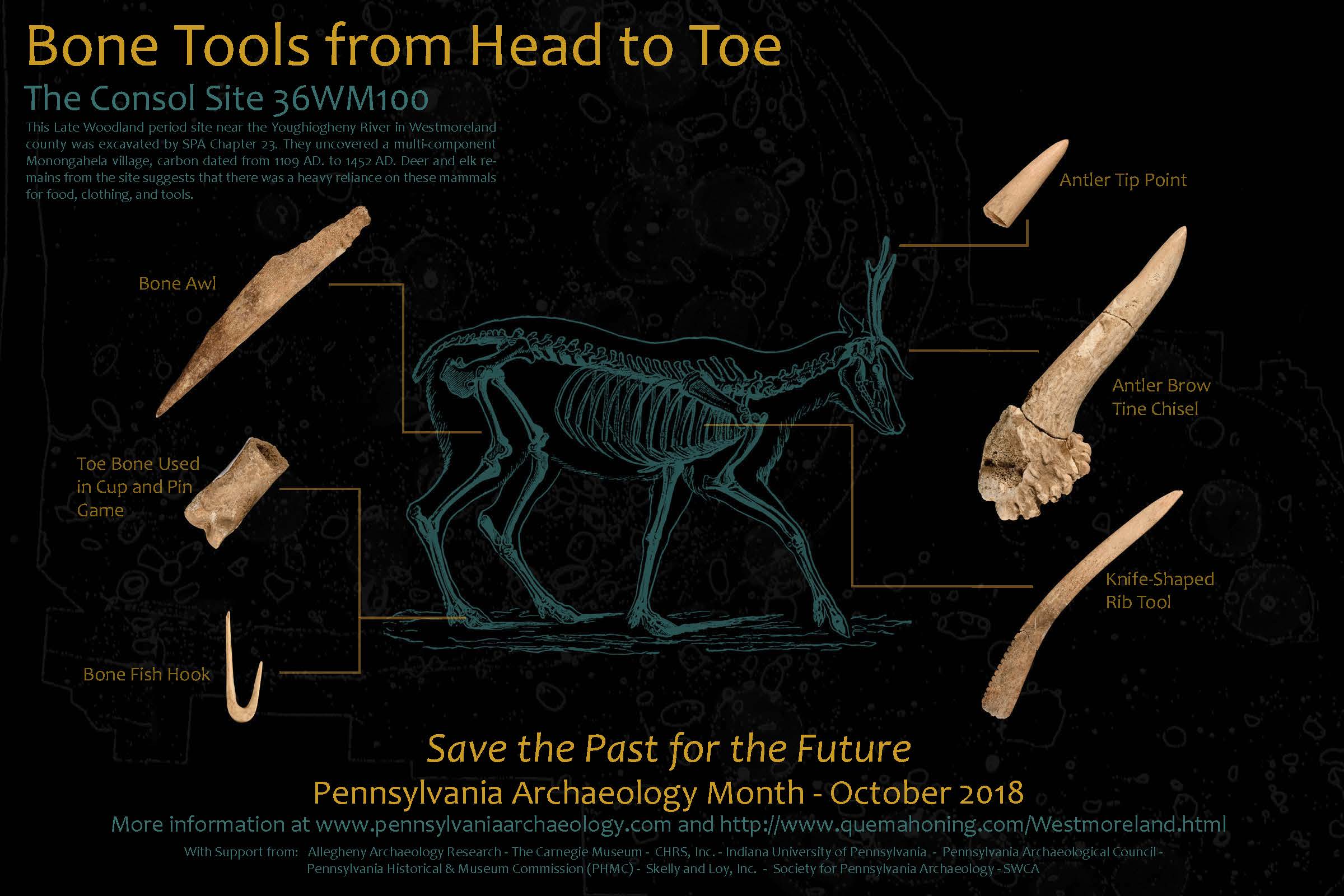
This year’s Archaeology Month poster.
Its purpose is to increase awareness of the important historic and prehistoric archaeological sites in the Commonwealth. These sites are part of the heritage of all Pennsylvanians. Everyday, archaeological sites are destroyed. We hope that through the Archaeology Month events, more Pennsylvanians become aware of this part of our history and work to protect our endangered resources.
Unless otherwise noted, all events are free and open to the public.
Arkhaios Film Festival, Frick Fine Arts Center, University of Pittsburgh, October 5, 6, 7, 2018 (Poster)
Arkhaios Film Festival, Frick Fine Arts Center, University of Pittsburgh, October 5, 6, 7, 2018 (Schedule)
Arkhaios Film Festival, Frick Fine Arts Center, University of Pittsburgh, October 5, 6, 7, 2018 (Synopsis of Films)
There are numerous websites where you can find further information about archaeology in Pennsylvania.

The Pennsylvania Archaeological Site Survey (PASS) is the Commonwealth’s inventory of recorded archaeological sites. Continue reading

Archaeology can be pretty slow in the winter, but like you, we’re gearing up for the spring field season! We thought we’d PASS some time updating a few things. Continue reading
© 2025 Pennsylvania Historic Preservation
Theme by Anders Noren — Up ↑
Recent Comments